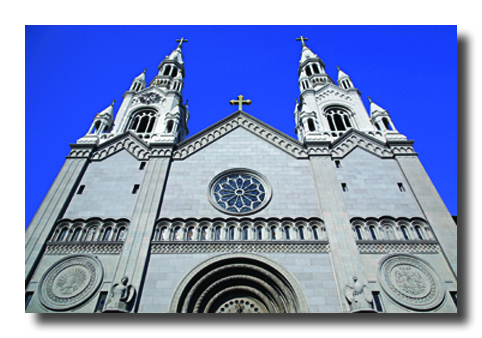In this first week of a new year, Voice of the Faithful reflects.

Voice of the Faithful, a community of Roman Catholics committed to service and reform, has always sought to “Keep the Faith, Change the Church.” We are faithful Catholics seeking to change those Church structures and processes that impede lay voices and change Church cultures that exhibit a clericalism that separates the clerical from the lay rather than binding them pastorally and collegially.
Such clericalism often stifles the people of God. Pope Francis has said as much and condemned clericalism repeatedly, recently saying that “the spirit of clericalism is an evil that is present in the Church today, and the victim of this spirit is the people, who feel discarded and abused.”
The story of Voice of the Faithful’s founding is well documented. The movement exploded onto the scene in 2002 along with the burgeoning visibility of Church scandal, specifically clergy sexual abuse of children in the Archdiocese of Boston, chronicled most effectively by The Boston Globe in 2002 and 2003.
The movement spawned a frenzy of activity at the beginning, fueled by anger at and frustration with a Church that had, euphemistically, let us down. If you were to review the Globe stories, other media coverage of the crisis from that era, and books about Voice of the Faithful written since, you would discover that Voice of the Faithful could be credited with much of the rhetoric calling the Church to task.
By 2017 Voice of the Faithful, with commitment and tenacity, has settled into a long struggle in which we use our voices to help change Church structure and culture so that scandal has no fertile ground in which to grow. Progress has been slow, but steady.
We offer Catholics a community within the community of the Church where, as the people of God, we find a way to remain faithfully Catholic without giving up our baptismal right and responsibility to offer opinions and foster dialogue on issues important to the Church.
This is a post-Vatican II point of view well expressed recently by Fr. Louis Cameli, author of more than a dozen books and the Chicago archbishop’s Delegate for Formation and Mission. In an interview about post-Vatican II pontiffs in National Catholic Reporter Cameli said he “sees underlying, foundational points of continuity in the post-conciliar era.” Two of the points he made are especially pertinent to Voice of the Faithful:
- “Communion: The Church is a set of interlocking and dynamic relationships among people and with the Triune God (in contrast to a primarily organizational-institutional-structural model of the Church).
- “Dialogue: The Church is the place where believers speak and listen to each other, and it is the community of faith that speaks with and listens to the world. (This is the ecclesia discens et docens (Church teaching and learning) and, therefore, is a dynamic community instead of a static “container of truth.”)”
Communion and dialogue could be Voice of the Faithful watchwords. We are a community concerned with providing a voice for the voiceless and have introduced the language of clericalism, accountability, and transparency into the language of Church reform, language that is being reiterated by no less than the present occupant of St. Peter’s chair. While we have always supported victims/survivors and promoted programs that better protect children, we have focused most directly on finding, naming, and publicizing the underlying causes of scandal which must be addressed to stop and prevent scandal.
Kathleen McPhillips, a lecturer at the University of Newcastle, has succinctly framed the challenge Voice of the Faithful seeks to meet. In an article in the Newcastle Herald called “The royal commission has exposed a Catholic Church in desperate need of change,” she said:
“It is imperative [that] current religious groups undertake research into why this happened, as well as resourcing for the healing of survivors … Understanding how this happened is essential to the health of our community, and to the creation of new Church structures which are transparent, inclusive, accountable and respectful of women and children. The Church needs to show it is serious about cultural change – this is yet to be effectively demonstrated.”
January 6, 2017
